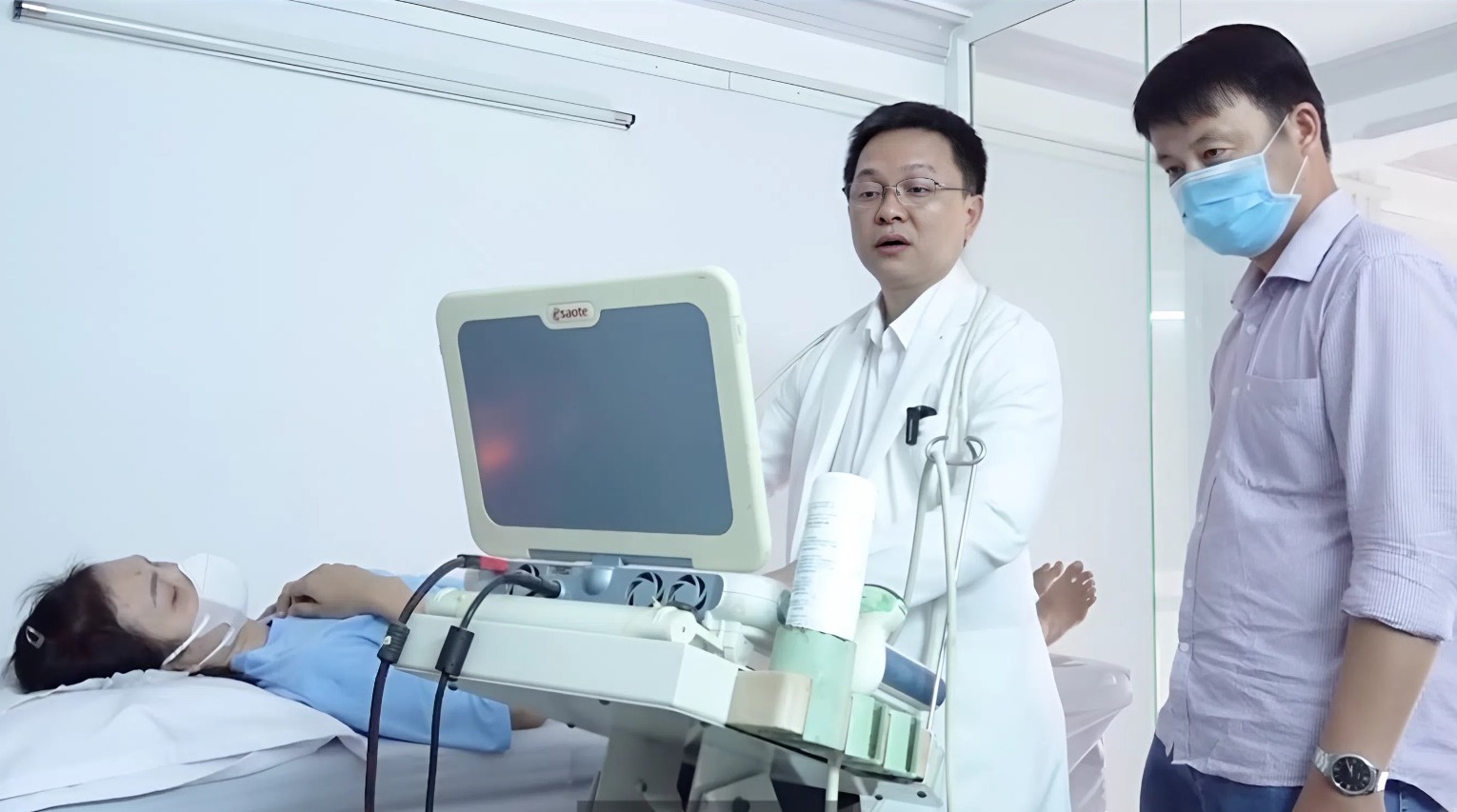"I felt desperate, unable to find the cause or a treatment. The pain disrupted my sleep and appetite," she said. The pain intensified at night, in the quiet.
Her visit to Dr. Le Thanh Phong in the Vascular Surgery Department at Cho Ray Hospital finally revealed the answer: pelvic congestion syndrome (PCS). Thanh's ovarian veins were severely dilated, causing blood to flow backward and pool in her pelvis. This led to chronic pain, especially during intercourse.
 |
Dr. Le Thanh Phong examining a patient. Photo: Phong Le |
Dr. Le Thanh Phong examining a patient. Photo: Phong Le
According to Dr. Phong, PCS is difficult to diagnose and often mistaken for gynecological, urinary, or digestive issues. It requires specialized vascular expertise and equipment not available at all medical facilities. Furthermore, patients' reluctance to discuss intimate issues often delays diagnosis. Medical literature suggests 8% of women experience PCS, with 60% exhibiting symptoms. However, Dr. Phong sees about 20 severe cases annually.
PCS frequently affects women who have had multiple pregnancies or given birth to several children. Hormonal changes cause veins to enlarge to accommodate increased blood flow to the fetus. In later months, the growing fetus can compress pelvic veins, further impeding blood flow and causing localized vein dilation. While veins typically return to normal after delivery, damaged vein valves can lead to persistent dilation and PCS.
Another cause is blockage or narrowing of major veins in the lower abdomen due to compression or blood clots. Blood then diverts through smaller veins, which enlarge over time due to increased blood flow, causing congestion.
PCS typically causes chronic lower abdominal pain lasting over six months, with increasing discomfort throughout the day. Pain worsens during and after intercourse, accompanied by leg heaviness and fatigue.
Women experiencing pain during intercourse and lower abdominal tenderness have a 94% likelihood of PCS. Additional symptoms may include irregular periods, difficulty urinating, constipation, and leg heaviness. Some cases present with varicose veins in the vulva, buttocks, or thighs.
Diagnosis involves abdominal ultrasounds, transvaginal ultrasounds, or venograms. Medical treatments like hormone therapy or vein support medications offer limited relief. Currently, the most effective methods are minimally invasive procedures like vein embolization or stent placement to restore blood flow, resulting in symptom improvement in 80-100% of patients.
Chronic pelvic pain can also stem from other gynecological conditions like endometriosis, uterine fibroids, pelvic cancers, or nerve compression. Therefore, women with pelvic pain should undergo gynecological examinations to rule out these conditions before considering PCS. Dr. Phong recommends that women with lower abdominal pain lasting over six months, pain during and after intercourse, post-coital leg fatigue, and varicose veins around the genitals consult vascular specialists.
"Treatment not only alleviates pain but, importantly, allows patients to resume a healthy intimate life," Dr. Phong stated, adding that PCS can strain relationships and even lead to marital breakdown.
After two embolization procedures, Thanh's pain subsided, and she now enjoys a normal sex life.
Le Phuong












